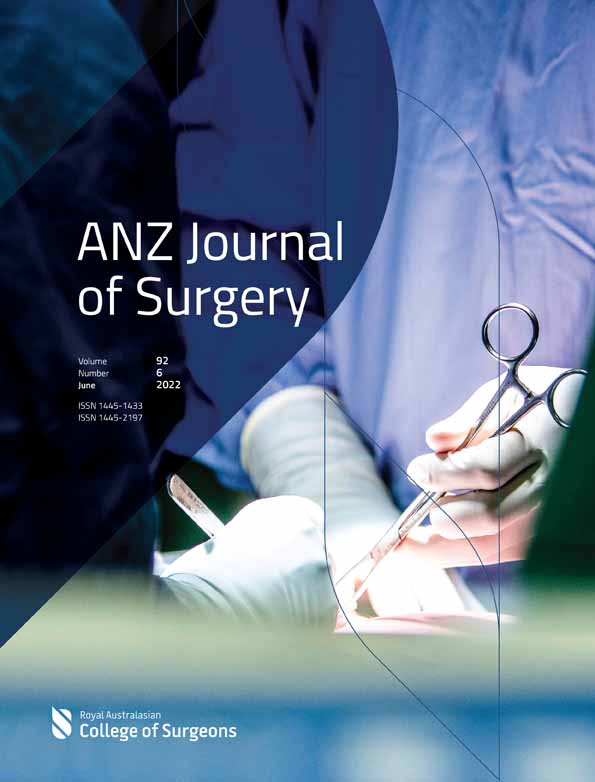Does deep neuromuscular blockade provide improved outcomes in low pressure laparoscopic colorectal surgery? A single blinded randomized pilot study
The corresponding author is not the recipient of a research scholarship, however, this study was funded by a 2015 Northern Health Small Research Grant. This paper has not been previously presented (in any format) to a society or meeting.
Abstract
Background
Low intra-abdominal pressure during laparoscopic colorectal surgery may improve outcomes and reduce hospital stay, in addition to Enhanced Recovery After Surgery (ERAS) protocols. There is concern that low pressure reduces laparoscopic vision and may increase surgical complications. Deep neuromuscular blockade may abrogate any reduction in vision of low-pressure pneumoperitoneum. However, antagonism of deep neuromuscular blockade at completion of surgery necessitates the use of sugammadex, which is prohibitively expensive, if there are no surgical benefits and warrants further study.
Methods
A single institution, single blinded randomized controlled pilot study was performed comparing deep to moderate neuromuscular blockade in major laparoscopic colorectal surgery.
Results
Thirty-eight patients were randomized to deep or moderate neuromuscular blockade. There were no statistically significant differences between groups, when comparing key patient demographics, or surgeon satisfaction with view, which required increased pressure or further relaxation demands. The deep blockade group had increased QoR15 scores and a decrease in pain, C-Reactive Protein (CRP) measurements and operating times, although were non-significant. The moderate group had slightly higher incidents of Medical Emergency Team (MET) calls and more severe complications, although were non-significant.
Conclusions
Low intra-abdominal pressure in laparoscopic colorectal surgery is feasible and allows adequate surgical visualization, regardless of the degree of neuromuscular blockade. Potential benefits of deep neuromuscular blockade may include improved pain and quality of recovery and a possible reduction of complications; however a larger cohort is required to confirm this. Future ERAS protocols may consider deep neuromuscular blockade with low intra-abdominal pressure to further benefit patients.
Conflict of interest
None declared.




